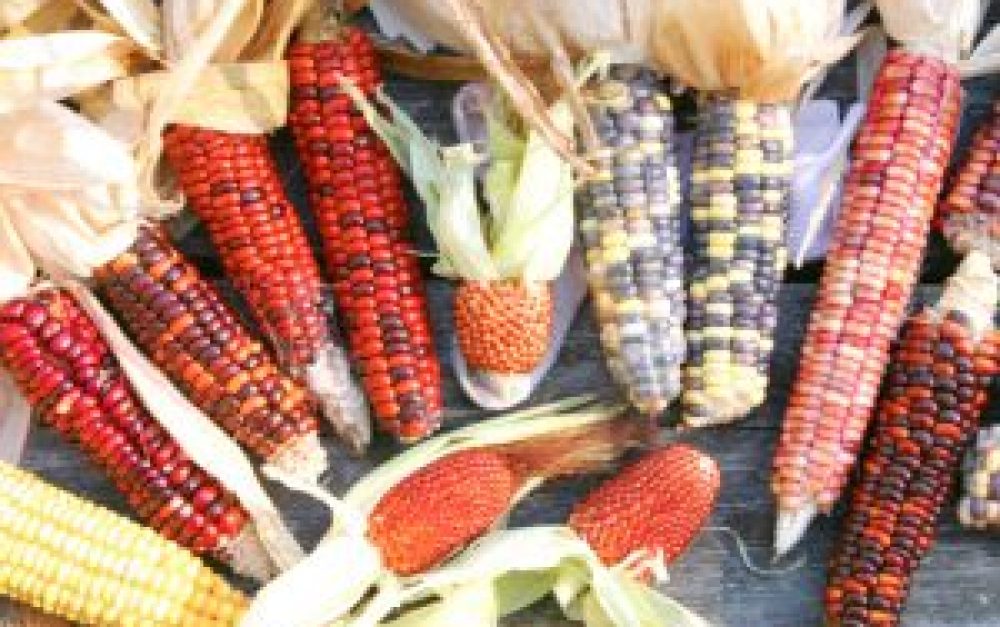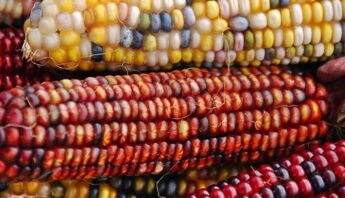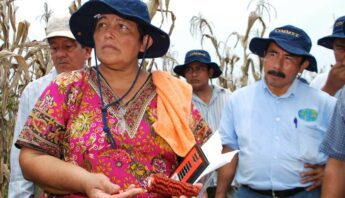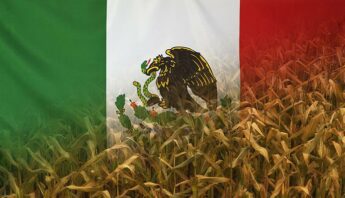“Sin Maíz, No Hay País!” The chant is ringing out this morning across the fields, villages and towns of Mexico, in recognition of Mexico’s National Day of Corn, September 29. “Without corn, there is no country!” is the literal translation of this ongoing national campaign to celebrate and protect the cultural heritage and significance of corn to the Mexican people.
With the campaign entering its fourth year, Mexicans can also celebrate the good news that the maize that Mexican farmers have been cultivating in traditional farming systems for thousands of years already contains much of the genetic diversity they’ll need to weather the challenges of climate change in the coming century.
A recently published international paper confirms what Mexican farmers have known in their hearts for generations. Researchers examined traditional maize seed systems used by 400 Indigenous and mestizo households from 20 communities in five states of eastern Mexico, at altitudes ranging from 10 to nearly 3,000 meters above sea level. Their conclusion:
Maize landraces in Mexico show remarkable diversity and climatic adaptability, growing in environments ranging from arid to humid and from temperate to very hot. This diversity raises the possibility that Mexico already has maize germplasm suitable for the 'novel' crop environments predicted for 2050.
The measured tone belies the significance of the report. Using their own indigenous and locally adapted seeds (Mexico has 59 landraces and 209 varieties of corn) and ecological methods of farming, Mexican farmers are prepared to adapt to the environmental stresses of climate and water crises looming on the horizon. In other words, despite everything that Monsanto tells us, Mexicans really don’t need GMOs or industrial agricultural packages from the North, thank you very much!
Maize, Mexico's staple food as well as a symbol, has the potential to adapt to climate change and mitigate its effects without any need for genetically modified seeds. – Emilio Godoy, IPS News, Sept 8, 2011
(Note that these findings — published in the U.S. journal, Proceedings of the National Academy of Sciences — come from scientists at decidedly mainstream research institutes such as Bioversity International, the International Maize and Wheat Improvement Centre (or CIMMYT), famous for its early role in the Green Revolution and, like Bioversity, a member of the CGIAR network, and the UN Food and Agriculture Organization.)
Commenting in a recent IPS News story, Carolina Ureta, a researcher at the Autonomous National University of Mexico’s Biology Institute, explains:
We have enough diversity to be able to introduce adaptation methods without the need for transgenics. Very few landraces have been genetically characterized, and transgenics could contaminate the genotypes that have not been produced commercially. Therefore, we should develop our own technology, to meet our own needs.
This is precisely what organizers of the “Sin Maíz, No Hay País!”campaign and thousands of civil society activists across the country have been saying for years. They are particularly critical of the Mexican Ministry of Agriculture’s recent decision to allow Monsanto to conduct a pilot study of RoundUp-Ready transgenic yellow corn, adding to the more than 170 acres of experimental transgenic corn that have been approved for planting since 2009.
The threat of genetic contamination of indigenous varieties by transgenic ones is high, particularly in corn which is well known to be a promiscuous cross-pollinator.
But the heart of the matter goes beyond the question of which kind of corn to plant. Farmers' ability to weather climate change depends not only on germplasm and seed systems, but also on their interaction with a host of complex social, economic and institutional factors. It's for this reason, Mexican activists explain, that “the Sin Maíz, No Hay País! campaign is also a way to grow awareness of peace and recognition of our right to fair, sufficient and healthy food. [It is a way for us] to engage all members of civil society in establishing food and agriculture policies that protect human rights, environment, biodiversity and the health of all people.” This sounds a lot like food sovereignty to me!
A global celebration of corn
As PAN joins in celebrating the rich cultural biodiversity of Mexico, I savor the words of Adelita San Vicente of Semillas de Vida, who spoke two weeks ago at the Justice Begins with Seeds conference here in San Francisco:
Our organizations call for a celebration of our corn – a symbol of our identity and the grain that feeds us and grows at the center of the garden that provides all our necessary nutrients and that represents us in our great diversity. We call out to honor the men and women farmers who give us food, water, culture and joy… On Thursday we will celebrate in the heart of Mexico City, and in many other hearts of the country and around the world, from California to Guatemala and beyond.
Celebratory actions will be held in 14 states across Mexico: Oaxaca, Chiapas, San Luis Potosi, Queretaro, Veracruz, Tlaxcala, Aguascalientes, Chihuahua, Jalisco, Nuevo León, Sinaloa, Aguascalientes, Hidalgo and Puebla.








